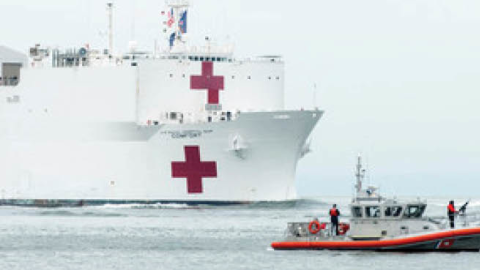As an invisible enemy begins to overwhelm the town of Oran in Albert Camus’s novel The Plague, a mid-level government bureaucrat named Castel insists that he seek orders from the central government before implementing a course of action to combat the worsening viral epidemic. The book’s hero, the doctor Rieux, responds to this indignantly. “Orders!” he laments. “When what’s needed is imagination.”
As Americans look for direction from our federal, state, and local governments, many can relate to the character of Castel: We are now awaiting orders in the midst of events most imagined could only be found in a novel like Camus’s. And despite the twenty-something spring breakers partying in Miami Beach as if they will live forever, most Americans have displayed a steely willingness to follow whatever orders come their way. Yet for us, and for citizens of every nation whose lives are set to be upended by the coronavirus pandemic, what is needed most in these unprecedented times is imagination.
It is only normal that most of us feel we are playing catch up with the spiraling events of each day’s news cycle. The imagination is often dormant until it is confronted with facts once considered unimaginable. Since the first known coronavirus case emerged in China, possibly on November 17, 2019, the diagnostic numbers around the globe have skyrocketed. Those figures now challenge even the most expansive imaginations: as of this writing, over 1.2 million cases worldwide, with 15,000 deaths in Italy, 13,000 in Spain, and 9,000 in the United States. It is difficult to imagine a world like this, let alone accept that we are living in it.
Read the full article in The American Interest















